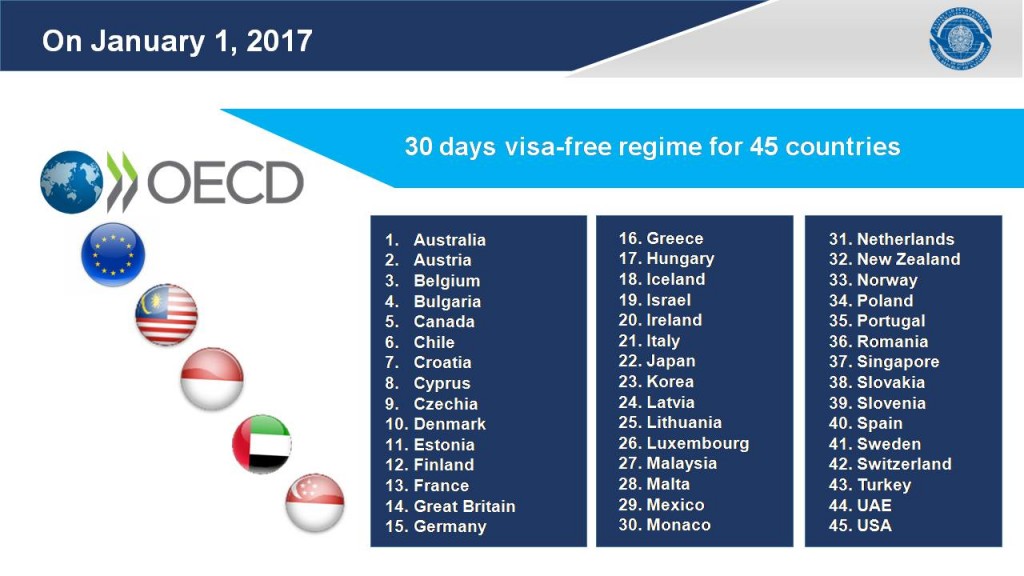ASTANA – New rules reducing the number of visa categories from 14 to three and reducing the paperwork necessary for a visitor to obtain a visa to Kazakhstan will come into effect Jan. 1.
Under the new rules, visas will be divided into type A for diplomats, officials and investors, type B for short-term visitors and type C for long-term visitors.
The changes also affect visas for the families of foreign diplomats accredited in Kazakhstan, study visas and visas for persons working in the Astana International Financial Centre and others.
The new rules are meant to streamline the visa process and bring them in line with national legislation and international standards. They are also meant to attract more foreign investment and ease the burden on businesses traveling to Kazakhstan.
“We wanted to create simple, clear, modern and comfortable rules based on the interests of our citizens, who actively cooperate with foreign partners, as well as for foreign nationals interested in Kazakhstan. I am convinced that it will open up additional opportunities to the business community for cooperation with the outside world and facilitate international contacts in different spheres,” said Kazakh Minister of Foreign Affairs Erlan Idrissov Dec. 20 while holding a joint briefing with First Deputy Minister of Internal Affairs Marat Demeuov for representatives of diplomatic corps, business community and local and foreign media.
Idrissov added that the changes are a key component of a package of measures to create a convenient and transparent visa regime. Another significant change coming into effect is the transfer of authority for the registration of entry invitations from foreign businesses and individuals from the Ministry of Foreign Affairs to the Ministry of Internal Affairs.
“This will result a significant liberation of the process of preparing invitations, as it will be carried out not only in Astana and Almaty, but also in all regional centres of the migration police units,” Idrissov said.
In turn, Demeuov noted that Ministry of Internal Affairs employees have been trained on the new regulations. The foreign ministry will continue to work with invitations from foreign ministries, diplomatic and consular institutions of foreign states, international organisations and their missions.
The foreign ministry plans to post the full text of the regulations on its website and get it published in the media.


